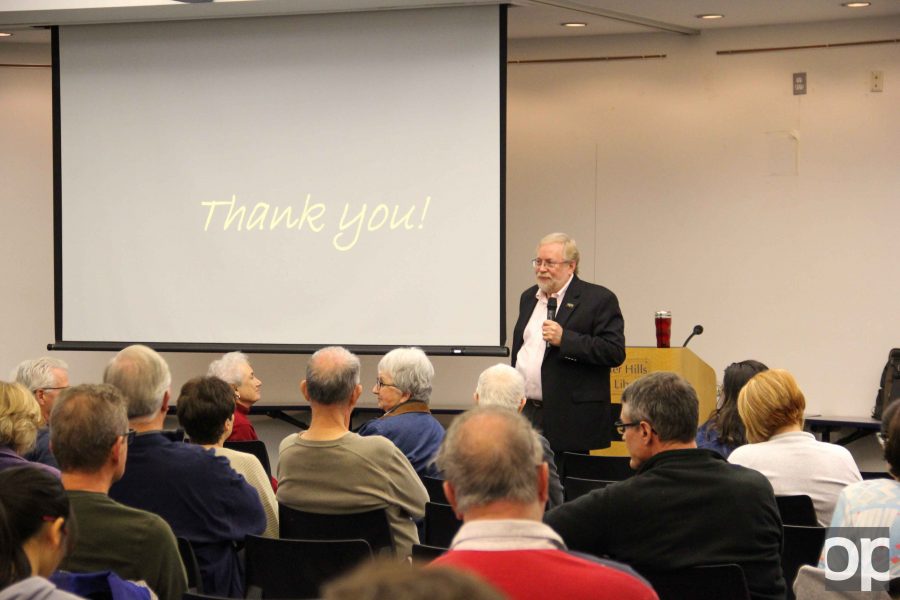Professor explains the truth behind lying
Serota’s lecture explored how, when and why people lie.
Oakland University Marketing Professor Kim Serota speaks at Rochester Hills public library about why people tell lies.
Nearly 70 people filled the Rochester Hills Public Library’s multimedia room on Saturday, Nov. 5, in search of a simple answer to a complicated question: Why do people lie?
The lecture was given by Oakland University Marketing Professor Kim Serota and is a variation of a lecture that he has presented for the last several years.
Serota started off by looking at how, why and how often people lie.
“Good communicators are the best liars,” Serota said.
According to Serota, communication and lying naturally exist together in human behavior. People lie to build relationships, entertain, follow social rituals and persuade and inform others.
Serota, who had a long career in marketing research, understands how marketers use lies to persuade and inform consumers.
“Marketers are good storytellers and liars,” Serota said. “They say, ‘This is what is good about my product,’ but they leave out what is bad about their product.”
In politics, lying works a little differently.
“I hate to break it to you, but all politicians lie,” Serota said.
Lying is much easier for established candidates than for unestablished ones. An established candidate also has more leverage to lie about a new candidate than vice versa.
“We know when politicians lie. There are fact checks for everything. In a way, we facilitate politicians’ lies,” Serota said.
He said the only way to deal with these lies is to confront them. This means people need to put their loyalties aside and tell their politicians that they know they’re lying and won’t tolerate it.
The same applies for communication in general. The best way to address a person who is lying is to confront them. This will generally stop them from telling lies in the future.
But why do they lie in the first place?
“People lie when the truth doesn’t work,” Serota said.
Sometimes it is easier to lie than to tell the truth.
For example, if a man asks if his friend whether his hair looks bad (and it does), the friend probably isn’t going to be honest and tell him that it looks bad. Sometimes it’s just easier to lie.
One of the biggest questions answered during Serota’s lecture was whether men or women lie more. Serota and other researchers have concluded that men lie more.
After the lecture, Serota talked with some of the more vocal audience members.
One question asked during the lecture that was not addressed because of its complexity was, “Is lying getting worse?”
“Like other cycles that happen in human nature, there is a cycle in our society for lying too,” Serota said. “There are ups and downs. Right now, we are at a higher point.”
During these times, if there is a powerful communicator who is an effective liar, it can have negative consequences for society.








